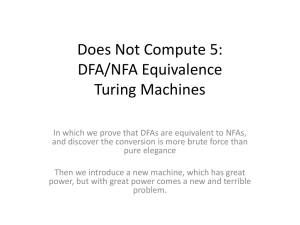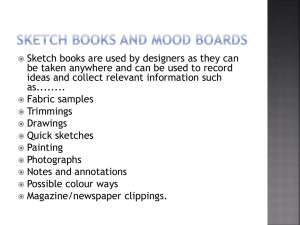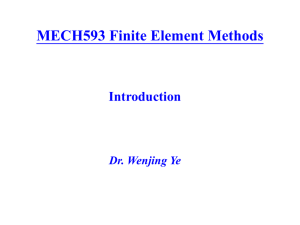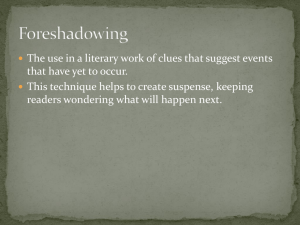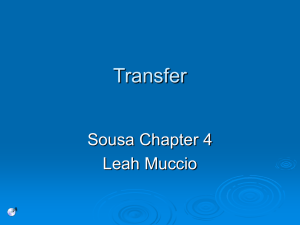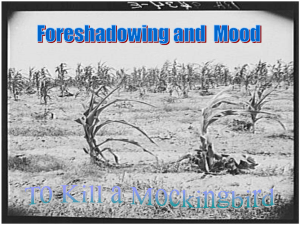Document
advertisement
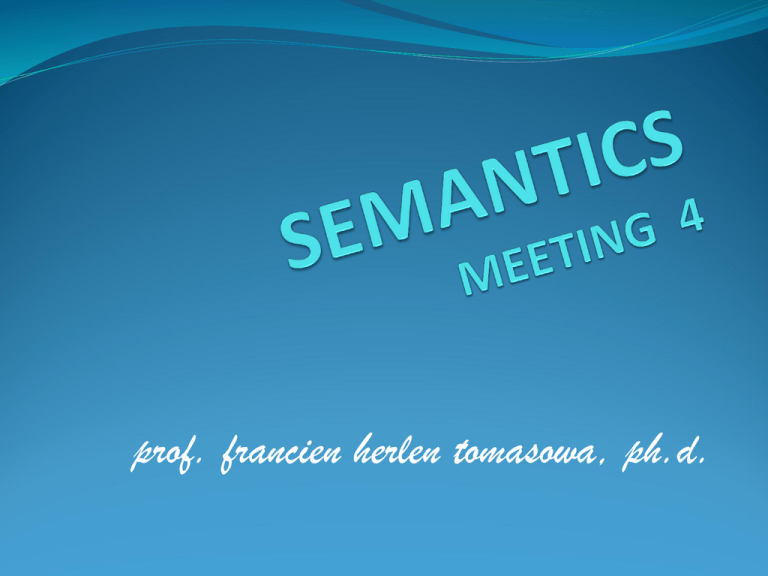
prof. francien herlen tomasowa, ph.d. CLAUSE AS EXCHANGE Simultaneously with its organization as a message, the clause is also organized as an interactive event involving speaker/ writer, and audience. Types of speech role: GIVING [inviting to receive] DEMANDING [inviting to give] Thus an act of speaking might ppropriately be called AN INTERACT in which ”giving” implies receiving and “demanding” implies giving in response. TWO VARIABLES DEFINING THE FOUR PRIMARY SPEECH FUNCTIONS OFFER, COMMAND, STATEMENT, QUESTION If you say something with the aim of getting someone to do something for you, the exchange commodity is strictly NON VERBAL. What is being demanded is an OBJECT or an ACTION, and language is brought in to help the process along. If you say something with the aim of getting someone to tell you something, what is being demanded is INFORMATION PRIMARY SPEECH FUNCTIONS commodity exchanged role in exchange giving demanding goods & services information “offer” would you like this teapot? “statement” he’s giving her the teapot “command” give me that teapot! “question” what is he giving her? SPEECH FUNCTIONS & RESPONSES initiation goods & services give offer demand command information: give demand statement question expected response acceptance undertaking acknowledgement answer discretionary alternative rejection refusal contradiction disclaimer SEMANTIC FUNCTION OF A CLAUSE IN THE EXCHANGE OF INFORMATION IN THE EXCHANGE OF GOODS & SERVICES SUBJECT May be any nominal group. If it is a personal pronoun, it is simply repeated each time. If it is anything else, then after the first occurence it is replaced by the personal pronoun corresponding to it. M O O D E L E M E N T S FINITE One of a small number of verbal operators expressing TENSE or MODALITY. In some instances, the Finite element and the lexical verb are “fused” into a single word. This happens when the verb is in simple past or simple present (tense), active (voice), positive (polarity) and neutral (contrast). SUBJECT and FINITE IN THE BODY OF THE CLAUSE AND THE TAG example Subject Finite the duke the duke the duke the duke has is did didn’t given away that teapot giving away that teapot give away that teapot give away that teapot hasn’t isn’t didn’t did he he he he the duke has Subject Finite Mood given that teapot away Residue has the duke Finite Subject Mood given that teapot away Residue FINITE VERBAL OPERATORS PAST LOW did, was had, used to can, may could, might PRESENT does, is has MEDIAN FUTURE HIGH will, shall would, should will,would, should is to, was to must, ought to need, has to, had to the duke has my aunt has that teapot has Subject Mood given my aunt that teapot hasn’t he been given that teapot by the duke hasn’t she been given my aunt by the duke hasn’t it Finite Finite Residue Subject Mood tag Sister Susie ‘s sewing Subject Finite Predicator Complement Mood Residue shirts for soldiers. Adjunct The function of the Predicator is fourfold. It specifies: 1. time reference 2. various other aspects and phases like seeming, trying, hoping 3. the voice (active/ passive) 4. the process (action, event, material, mental, relation) A Complement is an element within the Residue that has the potential of being Subject but is not. It is typically realized by a nominal group. the duke Mood gave my aunt that teapot Predicator Complement 1 Complement 2 Residue An Adjunct is an element that has not got the potential of being Subject. It is typically realized by an adverbial group or a prepositional phrase. e.g.: my aunt was given that teapot yesterday by the duke adverbial group Adjunct prepositional phrase A Conjunctive Adjunct tends to occur at points in the clause which are significant for textual organization , which means at some boundary or other: 1. clause initial [part of the textual theme]: However, such men don’t make good husbands. 2. clause final [afterthought]: Such men don’t make good husbands, however. 3. between Theme and Rheme: Such men, however, don’t make good husbands. 4. between Mood and Residue: Such men don’t, however, make good husbands. Conjunctive Adjuncts have no function in the ckause as exchange. There are 2 groups of Modal Adjuncts in terms of their place in the mood structure: 1. MOOD ADJUNCTS specifically relating to the finite verbal operators, expressing probability, usuality, obligation, inclination or time, and intensity. 2. COMMENT ADJUNCTS which tend to occur thematically, finally, between the Theme and Rheme, or between Mood and Residue; and when medial, they are typically associated with a boundary between information units. They typically occur: a. next to the Finite. b. before the Finite. c. after the Finite. Examples: She probably hasn’t arrived. He doesn’t always hear. You certainly must go. I’d gladly help. She’s already arrived. Principal Items Functioning as Mood Adjuncts probability/ obligation usuality presumption inclination time degree intensity certainly, surely, probably, perhaps, maybe, possibly, definitely, positively always, often, usually, regularly, typically, occasionally, seldom, rarely, ever, never, once evidently, apparently, presumably, clearly, no doubt, obviously, of course gladly, willingly, readily yet, still, already, once, soon, just quite, almost, nearly, totally, entirely, utterly, completely, literally, absolutely, scarcely, hardly just, simply, ever, only, really, actually unfortunately however he can’t Comment Adjunct Subject Finite Mood Adjunct Conjunctive Adjunct usually Mood hear clearly on the telephone presumption prep.phrase Predicator Adjunct Adjunct Residue CLAUSE WITH CIRCUMSTANTIAL, MODAL AND CONJUNCTIVE ADJUNCTS who Subject/ WH- Mood killed (past) kill Finite Predicator Residue Cock Robin Complement whose little boy are you Complement / WH- Finite Subject Residue Mood what have the elephants done Complement/ WH- Finite Subject Residue Mood to the pier Predicator Adjunct how neatly he Adjunct / WH- Subject Residue Mood spreads his claws ‘[present] spread’ Complement Finite Predicator come into my parlour will you Predicator Adjunct Finite Subject Residue Mood tag don’t you believe it Finite Subject Predicator Complement Mood Residue POLARITY AND MODALITY God Bless you !

